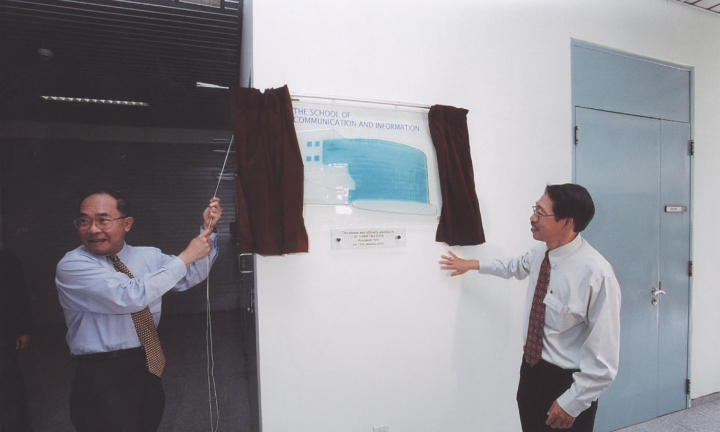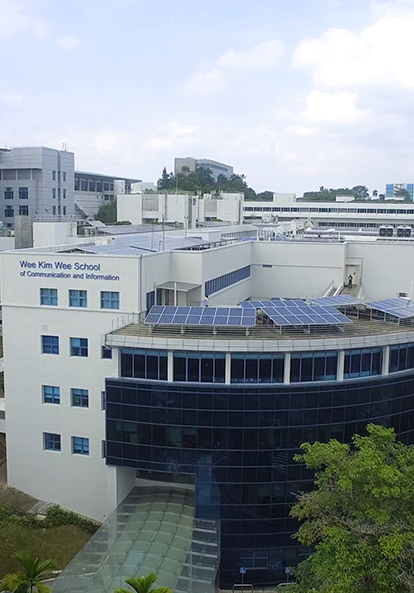Our History
2025
2024
Prof Jack Qiu is appointed as the Chair of the School with effect from 1 July 2024.
2020
2017
2015
2014
According to the 2014 Quacquarelli Symonds (QS) World University Rankings, Wee Kim Wee School of Communication and Information is ranked first in Asia and sixth in the world in the category of media communication studies.
2013
2012
2011

Years of tradition. Equipped for the future.
2010
The School hosts the 60th Annual Conference of the International Communication Association, 22-26 June 2010.
2009
The School receives three distinguished endowed professors:
Prof Ronald Rice – Nanyang Professor
Prof Geogette Wang – Wee Kim Wee Professor
Prof Vincent Mosco – Shaw Foundation Professor
2008
Assoc Prof Benjamin Detenber is appointed as the next Chair of the School, effective from 8 September 2008.

Official opening of the school with Dr Wee Kim Wee
2007
The School hosts the first World Journalism Education Congress in collaboration with the Asian Media Information and Communication Centre (AMIC) and the Association for Education in Journalism and Mass Communication (AEJMC).
2006
2005
2004
2003
Assoc Prof Ang Peng Hwa is appointed as the next Dean of the School.
2002
The School is renamed as the School of Communication and Information.
2001
The School expands to include a fifth division - the Division of Information Studies. A new curriculum introducing minors is implemented.
2000
The school hosts the global IAMCR 2000 conference in Singapore for the International Association for Media and Communication Research. The conference is titled "Communication Beyond 2000: Technology, Industry and Citizens in the Age of Globalisation".
1999
The school graduates its first PhD candidate, and a $1.5 million endowed professorship is established by the Shaw Foundation to focus on new technologies.

Launch of WKWSCI
1998
As part of its service to the media industry, the school graduates the first class of communication professionals enrolled in Master of Mass Communication degree programme.
1997
1996

